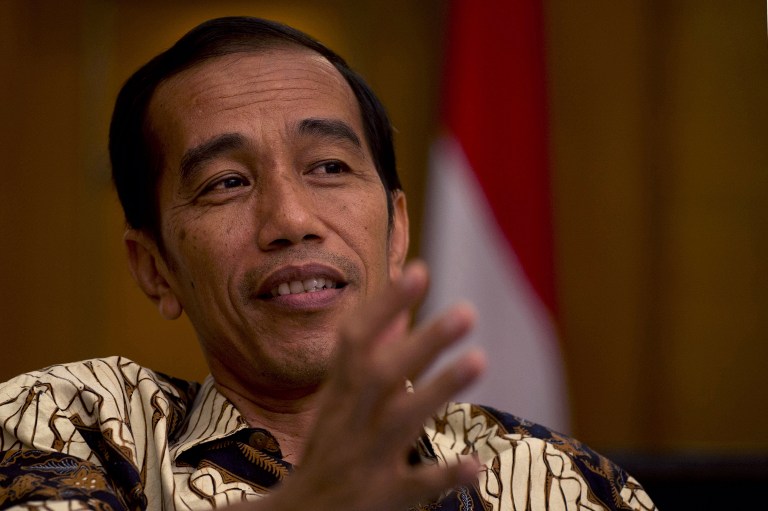Indonesia will beef up its anti-terrorism laws to give the authorities wider powers to take preventive measures and close legal loopholes that recently saw a radical cleric escape charges of joining the banned Middle East militant group Islamic State in Iraq and Syria (ISIS).
“It is very important to improve our regulations on this,” President Joko Widodo told The Stratis Times in an interview Sunday.
“We will put more provisions in our laws so we can prevent anyone planning to launch a terror attack.”
Joko, who heads a country with the world’s largest Muslim population, was referring to last month’s case involving 63-year-old Muslim cleric Afief Abdul Madjid, who was given a prison sentence of half the length prosecutors had demanded.
The smiling cleric, who had gone to Syria for paramilitary training with ISIS, was sentenced to four years’ jail for funding a terrorist paramilitary training camp in Aceh about five years ago.
The judges rejected the prosecutors’ argument that joining ISIS constitutes a plan to launch a terrorist attack.
Indonesia’s anti-terrorism law, adopted in 2003 in the wake of the 2002 Bali bombings that killed 202 people, can punish anyone who runs a terrorist group, but falls short of extending punishment to anyone pledging support or joining the group.
Joko said he has asked his law and human rights minister to work on this with Parliament so that Indonesia could have a more preventive law on terrorism.
“For me, stability, security is very important, in our country and in our region,” he said.
“That means working together, working closely with all countries to solve the terrorism problem because we have zero tolerance for terrorism.”
For this, he said, sharing information and intelligence among countries to fight terrorism is a must.
The acquittal of Afief, the first Indonesian to have been tried for involvement in ISIS-related activity, has raised worries as at least 13 alleged ISIS-related terrorists are slated to go on trial from next month in the West Jakarta court.
Many of the 13 have not gone to Syria. Some are accused of either creating a website to promote ISIS or funding and helping ISIS supporters to travel to the Middle East to link up with the militant group.
One of the men, Muhammad Amin Mude, 41, was arrested after police said they foiled his attempt to arrange for six people with fake passports to go to Syria.
Amin is alleged to have arranged the trips of three batches of travelers to Syria prior to his arrest.
Another of those arrested, Muhammad Fachry, is accused of setting up and running a radical website that promotes ISIS and invites people to go to Syria.
Adhe Bhakti, a researcher at the Centre for Radicalism and Deradicalization Study, agrees with Joko’s plan to introduce a law to address the ISIS problem.
He told The Straits Times: “Afief went to Syria and pledged his allegiance to ISIS, attended a military training with ISIS. It is that clear, yet he could get off the hook.”
Indonesia urgently needs a law that punishes anyone that supports a terrorist organization, and another law that defines what qualifies as a terrorist organization, instead of just declaring ISIS as a terrorist organization, Adhe added.
RELATED STORIES
‘4 Indonesians, Arab protected by BIFF’
Int’l terrorist Marwan a US-trained engineer


